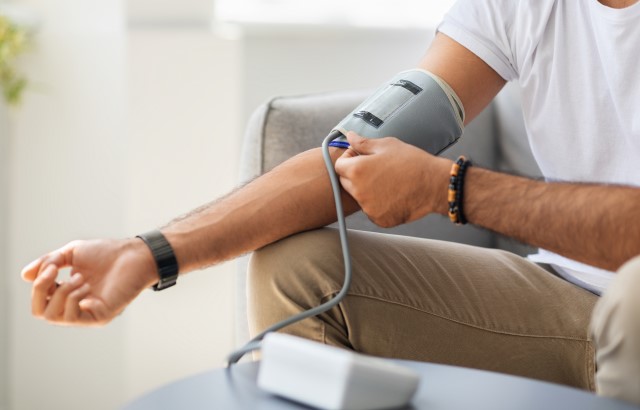
Slash heart attack and strokes by finding ‘missing millions’ with undiagnosed high blood pressure


Over 125,000 heart attacks and strokes could be prevented in the coming decade by finding and treating the millions of people with undiagnosed high blood pressure in the UK, alongside improving treatment for those already diagnosed with high blood pressure and cardiovascular disease, according to our new analysis.

Failure to do so risks creating a ‘powder keg’ of future ill health that threatens to devastate families and pile unsustainable pressure on the UK’s health systems.
High blood pressure is the biggest modifiable risk factor for cardiovascular disease in the UK. If untreated, it can significantly raise the risk of heart attack and stroke, with around half of heart attacks and strokes associated with the condition.
Of the 16 million adults in the UK estimated to have high blood pressure, up to half are not receiving effective treatment, our latest estimates show. As many as five million are estimated to have undiagnosed high blood pressure.
Significant overall gains can be made by improving the diagnosis and treatment of high blood pressure. In our new strategy, we are calling on the UK to “reimagine how it prevents cardiovascular disease” by igniting a revolution in research and innovation.
We are also committing to investing more in research and innovation to transform ways of detecting, diagnosing and treating many of the risk factors for cardiovascular disease, such as high blood pressure and high cholesterol.
Huge gains within our grasp
Professor Bryan Williams OBE, our chief scientific and medical officer, said: “Huge gains can be made by reimagining how we detect and treat common risk factors for cardiovascular disease such high blood pressure.
"But at the moment, millions of people are still living undiagnosed with these conditions, which raise the risk of serious illness such as heart attack and stroke – this is a powder keg for the nation’s future health, so making sure these people are identified and treated is critical.
“Such change is within our grasp – years of medical advances mean we have highly effective, evidence-based treatments to treat high blood pressure. This is one of the many tools we have to stop heart disease before it starts, but we must get more effective at identifying those at risk and treating them.
"Moreover, we must change the way we approach disease prevention, making it more convenient to access and by using cutting edge science and technology to more precisely identify and effectively treat people at risk, so that serious illness is avoided in the first place.”
Achievable ambitions
We pledge to focus investment in cutting-edge research and innovation to stop heart disease before it starts, including novel use of AI, data science, genomics and behavioural science.
We will also lead on the creation of a world-first new AI-enabled clinical guideline for preventing cardiovascular disease, which will make it easier for people to get precision guidance on the treatment they need.
Alongside better detection and management of risk factors, the Government must build on recent policy changes that create a healthier food environment and put an end to smoking, which will help address the causes of cardiovascular disease.
Achieving these ambitions will not only help to prevent more heart attacks and strokes but also help to reduce persistent health inequalities. People living in the most deprived areas are more likely to have high blood pressure than those living in the least deprived and less likely to be effectively treated.
Joyce’s story

Joyce Agyare-Twum from Surrey was diagnosed with high blood pressure in 2008.
“I always thought I was healthy, until a routine visit to a health clinic over 15 years ago. When the nurse told me I had high blood pressure I thought something must be wrong with the machine. Or maybe it was because I'd been rushing to get there from work. She told me to see my GP, but I was in denial and just carried on with life.
“A few months later I had to go for a procedure at the dentist, for which he had to take my blood pressure. He took several readings and each time it was high. He said he would not do the procedure until I'd seen my GP. I burst into tears. Both my parents, back in Ghana, had high blood pressure but they had been diagnosed in their 60s. I was in my 30s, my children were six and eight, and I thought, 'I'm too young for this'.”
Joyce was subsequently given medication to treat her high blood pressure, and in a short time her blood pressure was mostly down to normal levels. She now takes care to take her medication regularly, alongside measures to reduce the amount of salt in her diet.”
“Looking back, I see how lucky I was that my high blood pressure which is a key risk factor for heart attacks and strokes, were caught early,” she says.

